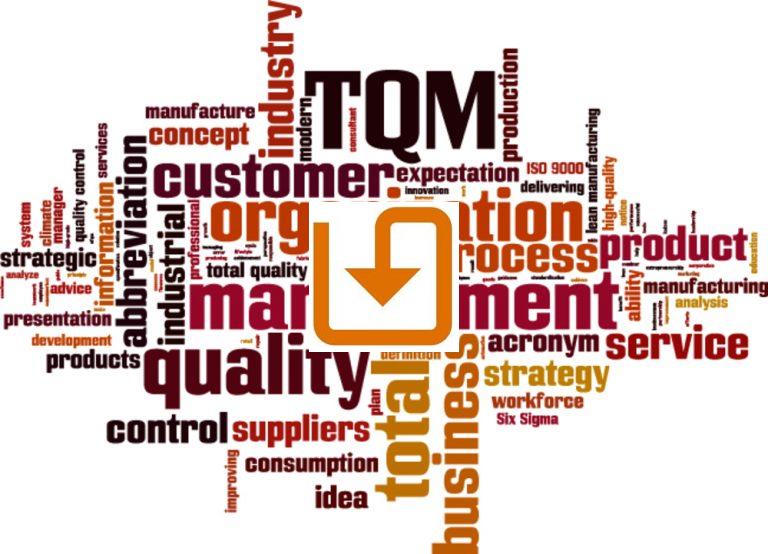Best TQM Six Sigma services in Mumbai

Total Quality Management (TQM) definition is a philosophy and guiding principles critical to a continuously improving organization.
TQM in business brings a cultural change in business along with increased productivity as well as reduced cost of operations.
TOOLS AND TECHNIQUES TO IMPLEMENT THE TQM PRINCIPLES
Tools and techniques of TQM methodology are:
Quality function deployment:
It is a planning tool to define the customers’ voice and fulfill their expectations. QFD can translate a customer’s expectations of engineering and technical characteristics and then put the appropriate directions and actions to meet them through product planning, part development, process planning, production planning, and after-sales services.
Quality management system:
It is a structured method of deciding all the department’s roles and responsibilities to establish continuous improvement.
A regular review process with all stakeholders and an appreciation for where new practices have been introduced are essential steps that should be conducted in every collaborative business model.
Benchmarking:
It systematically analyzes a company’s quality measures and customer-oriented parameters against best industry practices. It encourages better performance from a team by providing a framework.
Statistical Process Control (SPC):
Statistical Process Control is a set of techniques to study a particular process, understand its trend concerning quality and capacity, and take appropriate measures to control or reduce any deviation that might creep in.
The concept of TQM Six Sigma is so effective that it shapes productivity, profitability, and sustainability across almost all industries.
PRINCIPLES AND PRACTICES – TQM SIX SIGMA
1. A committed and proactive management at all levels of the organization to provide top-to-bottom support keeping in mind the long-term goals.
2. A customer-focused approach- an inherent commitment to internal and external customers.
3. Culture of a highly engaged workforce.
4. Never-ending improvements in business and manufacturing processes.
5. Consider vendors as partners in your business and make beneficial decisions for both.
6. Use statistical analysis to establish performance measures for the processes.
One of the essential concepts of Total Quality Management Six Sigma is to have an unwavering focus on all the internal and external customers linked with the process.
Before the TQM era, different departments in a company operated as separate autonomous entities, and they were always focused on short-term goals and were unwilling to link with the other ones. However, Total Quality Management Six Sigma focuses on clubbing them for a customer-focused and performance-oriented common goal.
Another important concept of Total Quality Management Six Sigma is defining and establishing performance measures for each functional area, such as uptime, degree of non-conformance, statistical variation in the process, Capability of the process, and preventive maintenance.
Effective leadership, customer satisfaction, employee involvement, and supplier partnership are the key pillars on which the principles of TQM grow
REQUEST A
CALL BACK
Please fill the form and click the submit button. We will get back to you in 1-2 business days.





